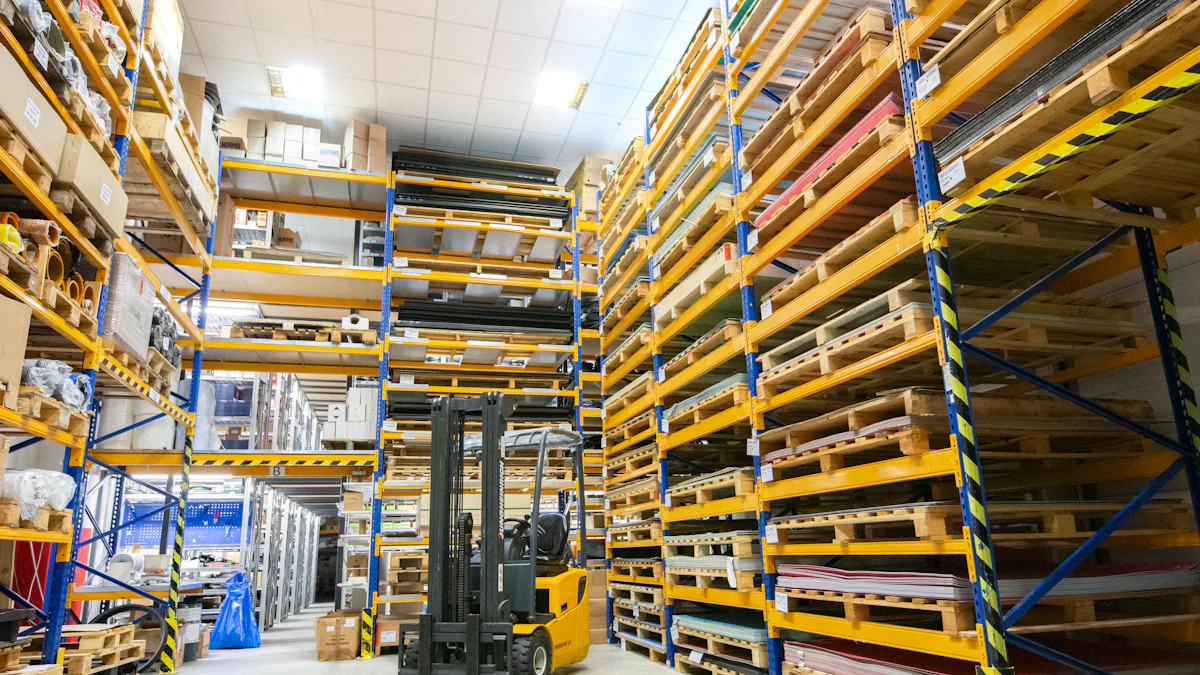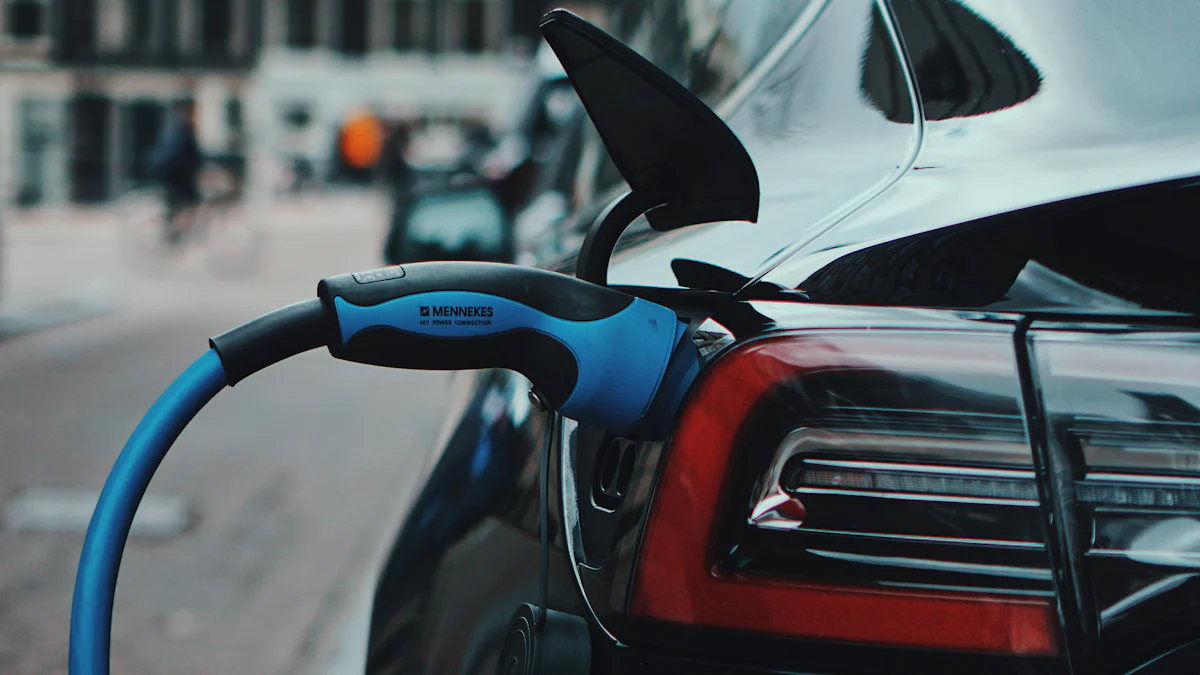Navigating Challenges in the Automotive Supply Chain: Expert Tips

The automotive supply chain serves as the backbone of the industry, ensuring seamless operations from design to distribution. With challenges like overstocked inventory and cybersecurity threats looming large, manufacturers face a complex landscape. Effective automotive supply chain management is crucial for preventing delays and meeting customer demands, involving careful planning and optimized systems. In 2021, disruptions hit hard, causing significant setbacks. NewStream Enterprises, LLC Expert Team emphasizes the need for robust solutions to streamline operations and reduce stress in the warehouse. BlockHarbor underscores the criticality of securing the supply chain amidst rising concerns. As we delve into expert tips, let’s navigate these challenges together.
Understanding the Automotive Industry Supply Chain
The automotive industry supply chain is a vast and intricate network that forms the backbone of vehicle production and delivery. This complex system involves a multitude of suppliers, manufacturers, and logistics providers working in unison to ensure that every component, from the smallest screw to the largest engine part, arrives at the right place and time. The supply chain’s efficiency is critical for car makers, as it directly impacts their ability to meet production schedules and deliver vehicles to customers on time.
With the automotive industry rapidly evolving, particularly with the rise of electric vehicles (EVs) and autonomous vehicles, the supply chain faces new challenges and opportunities. The demand for EVs, in particular, has introduced a need for specialized components and raw materials, such as lithium, cobalt, and nickel, essential for battery production. This shift necessitates innovative solutions to manage the increased complexity and associated risks.
To navigate these changes, automotive companies are adopting advanced technologies and forging strategic partnerships. By leveraging data analytics, artificial intelligence, and other cutting-edge tools, they can enhance supply chain visibility, improve risk management, and streamline operations. As the industry continues to evolve, the ability to adapt and innovate within the supply chain will be crucial for maintaining competitiveness and meeting consumer demands.
Inventory Management

Overstocked Inventory
Causes of Overstock
Inadequate demand forecasting leading to surplus inventory accumulation.
Production delays due to delays in acquiring critical components, causing a backlog of finished goods.
Inefficient communication between suppliers and manufacturers resulting in excess stock.
Solutions for Overstock
Implement advanced data analytics to enhance demand prediction accuracy.
Introduce agile manufacturing practices to reduce lead times and prevent overproduction.
Foster better collaboration among supply chain partners to optimize inventory levels.
Just-in-Time Operations
Benefits of JIT
Minimizes carrying costs by reducing excess inventory storage expenses.
Enhances production efficiency through synchronized material flow.
Improves product quality by promoting continuous workflow and inspection processes.
Risks and Mitigation Strategies
Dependency on timely supplier deliveries in global supply chains can lead to disruptions; diversify supplier base for resilience.
Equipment breakdowns or malfunctions may halt operations; conduct regular maintenance checks for reliability.
Fluctuations in customer demand might affect production schedules; maintain open communication channels with clients.
Cybersecurity
In the realm of the automotive supply chain, the looming specter of cyber threats poses a significant challenge. According to insights from Clara Wood, 64% of automotive industry leaders express concerns about vulnerabilities to cyberattacks. This underscores the critical need for proactive measures and collaboration to safeguard against potential breaches.
Automotive Supply Chain Vulnerabilities
Common Cyber Threats
Phishing Attacks: Cybercriminals often use deceptive emails or messages to gain unauthorized access to sensitive information.
Ransomware: Malicious software that encrypts data, demanding payment for its release, disrupting operations.
Data Breaches: Unauthorized access leading to exposure of confidential data, compromising security.
Preventive Measures
To fortify defenses against these threats, organizations must adopt a multi-faceted approach:
Implement Regular Security Audits: Conduct routine assessments to identify vulnerabilities and strengthen defenses.
Enforce Employee Training Programs: Educate staff on cybersecurity best practices and raise awareness about potential risks.
Utilize Advanced Encryption Technologies: Secure data transmissions and storage with robust encryption protocols.
Comprehensive Security Approach in Automotive Supply Chain Management
Proactive Measures
In light of insights shared by Ekaterina Serban regarding the accelerating complexity of the automotive supply chain landscape, it is imperative to take proactive steps:
Embrace Continuous Monitoring: Implement real-time monitoring systems to detect and respond swiftly to any suspicious activities.
Establish Incident Response Plans: Develop comprehensive strategies outlining steps to be taken in case of a cyber incident.
Collaboration with Stakeholders
To enhance cybersecurity resilience across the supply chain ecosystem, collaborative efforts are essential: “Cybersecurity is a shared responsibility that necessitates collective action.” - Ekaterina Serban Key stakeholders should engage in:
Sharing Threat Intelligence: Exchange information on emerging threats and vulnerabilities, including insights from original equipment manufacturers.
Coordinating Response Efforts: Collaborate on response strategies and mitigation plans with original equipment manufacturers to navigate challenges and opportunities.
By prioritizing cybersecurity as a fundamental aspect of operational strategy, automotive entities can mitigate risks and ensure the integrity of their supply chain networks.
Transition to EVs
The transition to electric vehicles (EVs) is reshaping the automotive industry, bringing profound changes to the supply chain. This shift requires a new set of raw materials, such as lithium, cobalt, and nickel, which are vital for battery production. As the demand for these materials surges, automakers are investing heavily in securing their supply to avoid shortages and stabilize costs.
Battery manufacturers play a pivotal role in this evolving landscape. To ensure a steady supply of batteries, many automotive companies are entering joint ventures with battery manufacturers or establishing their own production facilities. This strategic move not only secures the necessary components but also allows for greater control over the production process and quality standards.
The transition to EVs also necessitates significant changes in inventory management and supply chain operations. Traditional internal combustion engine vehicles and EVs have different component requirements, leading to a need for more specialized inventory management systems. Automakers must adapt their supply chain strategies to accommodate the unique demands of EV production, ensuring that they can efficiently manage the flow of materials and components.
In this new era, the ability to innovate and adapt is more important than ever. By embracing new technologies and forging strategic partnerships, automotive companies can navigate the complexities of the EV transition and drive sustainable growth within the industry.

As the automotive industry embraces the shift towards electric vehicles (EVs), manufacturers are compelled to make strategic adjustments in their supply chains. This transition necessitates a reevaluation of component requirements and supplier dynamics to align with the evolving landscape.
Supply Chain Adjustments
Changes in Component Requirements
The surge in EV adoption brings forth a paradigm shift in automotive supply chains, requiring continuous adaptation and the use of advanced technologies. Automakers are now faced with the challenge of sourcing specialized components tailored for electric vehicles. The demand for advanced battery technologies, sophisticated power electronics, and efficient charging infrastructure underscores the need for agile procurement strategies.
Embracing Sustainable Materials: EVs demand eco-friendly materials like lithium, cobalt, and nickel for battery production.
Enhancing Energy Efficiency: Components must prioritize energy conservation to optimize EV performance.
Adapting to Software Integration: The integration of software solutions is crucial for enhancing vehicle intelligence and connectivity.
Supplier Adaptation
In response to the EV revolution, suppliers play a pivotal role in reshaping the automotive supply chain. Collaborative partnerships and innovative solutions are imperative for ensuring seamless transitions and sustainable growth.
Strategic Collaboration: Automakers must forge strategic alliances with suppliers specializing in EV components.
Quality Assurance Measures: Suppliers need to adhere to stringent quality standards to meet the exacting requirements of electric vehicle manufacturing.
Technological Integration: Suppliers should invest in cutting-edge technologies to support the development of next-generation EV components.
Challenges and Solutions
Infrastructure Development
The proliferation of electric vehicles necessitates robust infrastructure development to support charging networks and sustainable mobility solutions. Governments and private entities must collaborate to build an extensive charging infrastructure that caters to the growing fleet of electric vehicles.
"Investing in charging infrastructure is key to accelerating EV adoption." - Industry Expert
Key initiatives include:
Establishing Fast-Charging Stations: Rapid deployment of fast-charging stations along highways and urban centers enhances convenience for EV owners.
Promoting Smart Grid Integration: Integrating smart grid technologies enables efficient energy management and optimizes charging processes.
Implementing Incentive Programs: Governments can introduce incentives for building public charging stations to incentivize private investments in charging infrastructure.
Training and Skill Development
The advent of electric vehicles necessitates a skilled workforce capable of handling advanced technologies and intricate systems. Training programs focused on EV technology are essential for upskilling industry professionals and fostering innovation within the automotive sector.
Technical Training Workshops: Hands-on workshops on battery maintenance, powertrain systems, and software integration enhance technical competencies.
Cross-Disciplinary Collaboration: Encouraging collaboration between engineers, software developers, and environmental experts fosters holistic problem-solving approaches.
Continuous Learning Initiatives: Industry professionals should engage in continuous learning programs to stay abreast of technological advancements in the electric vehicle domain.
As automakers navigate the complexities of transitioning towards electric vehicles, proactive measures, strategic partnerships, and skill development initiatives will be instrumental in driving sustainable growth within the automotive supply chain ecosystem.
To ensure operational efficiency, effective risk management and the adoption of automation tools are paramount in navigating automotive supply chain challenges.
Transforming these hurdles into growth opportunities is key for automakers to thrive in an evolving market landscape.
By prioritizing robust solutions and strategic adaptations, the automotive industry can fortify its supply chain resilience and drive sustainable growth. Efficient supply chain management requires a proactive approach to address vulnerabilities and embrace innovations that propel the industry forward.
Supply Chain Trends and Innovations
The automotive supply chain is experiencing a wave of transformation, driven by technological advancements, changing consumer preferences, and global economic shifts. Among the most significant trends and innovations are the integration of artificial intelligence (AI) and machine learning (ML) to optimize supply chain operations. These technologies enable companies to enhance inventory management, improve demand forecasting, and streamline logistics, ultimately leading to more efficient and resilient supply chains.
The use of Internet of Things (IoT) devices and blockchain technology is also revolutionizing the automotive supply chain. IoT devices provide real-time tracking of parts and materials, offering unprecedented visibility into the supply chain. This enhanced visibility helps reduce the risk of counterfeiting and ensures that components are sourced and delivered efficiently. Blockchain technology, on the other hand, offers a secure and transparent way to record transactions, further enhancing trust and accountability within the supply chain.
Another notable innovation is the use of digital twins and smart factories. Digital twins are virtual replicas of physical assets, processes, or systems that allow companies to simulate and analyze their operations in real-time. This technology enables manufacturers to optimize production processes, predict maintenance needs, and quickly adapt to changes in demand or supply. Smart factories, equipped with advanced automation and data analytics, enhance efficiency and flexibility, allowing for more responsive and agile supply chain operations.
As the automotive industry continues to evolve, staying ahead of these trends and innovations will be crucial for maintaining a competitive edge. By embracing new technologies and innovative solutions, automotive companies can enhance their supply chain resilience, improve operational efficiency, and drive sustainable growth in an increasingly complex and dynamic market.
See Also
Efficient Strategies for High-Tech Manufacturing's Supply Chain Challenges
Rising Prices: Managing Supply Chain Interruptions
Transforming Transportation: The Influence of Supply Chain Advancement
Constant Readiness: JUSDA Risk Mitigation for Strong Supply Chains
